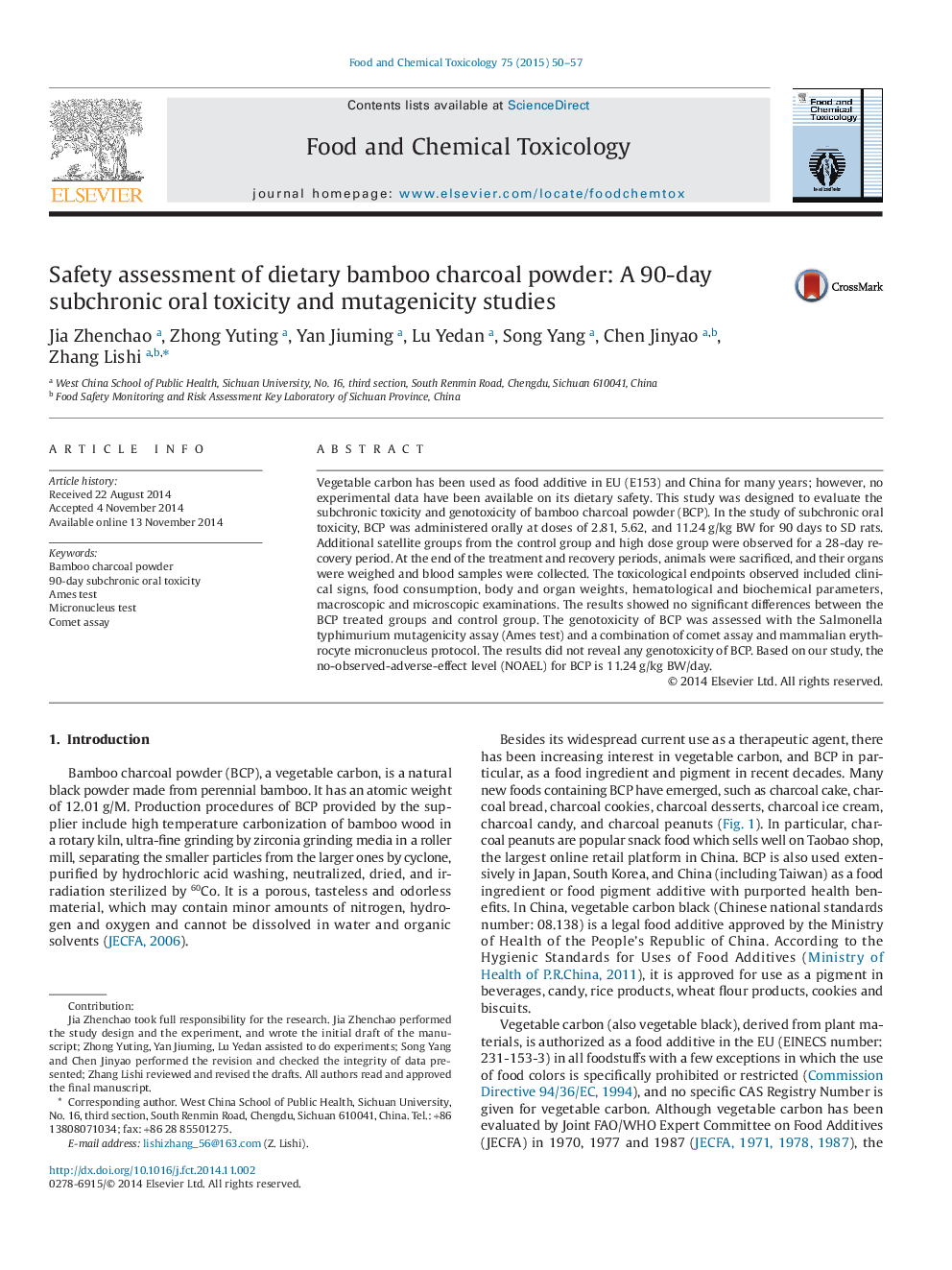| Article ID | Journal | Published Year | Pages | File Type |
|---|---|---|---|---|
| 5849862 | Food and Chemical Toxicology | 2015 | 8 Pages |
â¢The work is the first study in vivo on dietary safety of BCP, a vegetable carbon.â¢The no-observed-adverse-effect level (NOAEL) for BCP is 11.24âg/kg BW/day.â¢The results did not reveal any genotoxicity of BCP.â¢BCP should be of no toxicological concern by oral digestion at present use levels.
Vegetable carbon has been used as food additive in EU (E153) and China for many years; however, no experimental data have been available on its dietary safety. This study was designed to evaluate the subchronic toxicity and genotoxicity of bamboo charcoal powder (BCP). In the study of subchronic oral toxicity, BCP was administered orally at doses of 2.81, 5.62, and 11.24âg/kg BW for 90 days to SD rats. Additional satellite groups from the control group and high dose group were observed for a 28-day recovery period. At the end of the treatment and recovery periods, animals were sacrificed, and their organs were weighed and blood samples were collected. The toxicological endpoints observed included clinical signs, food consumption, body and organ weights, hematological and biochemical parameters, macroscopic and microscopic examinations. The results showed no significant differences between the BCP treated groups and control group. The genotoxicity of BCP was assessed with the Salmonella typhimurium mutagenicity assay (Ames test) and a combination of comet assay and mammalian erythrocyte micronucleus protocol. The results did not reveal any genotoxicity of BCP. Based on our study, the no-observed-adverse-effect level (NOAEL) for BCP is 11.24âg/kg BW/day.
